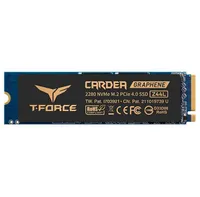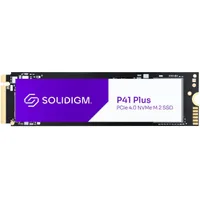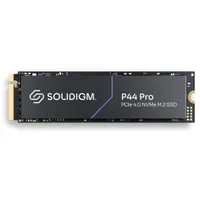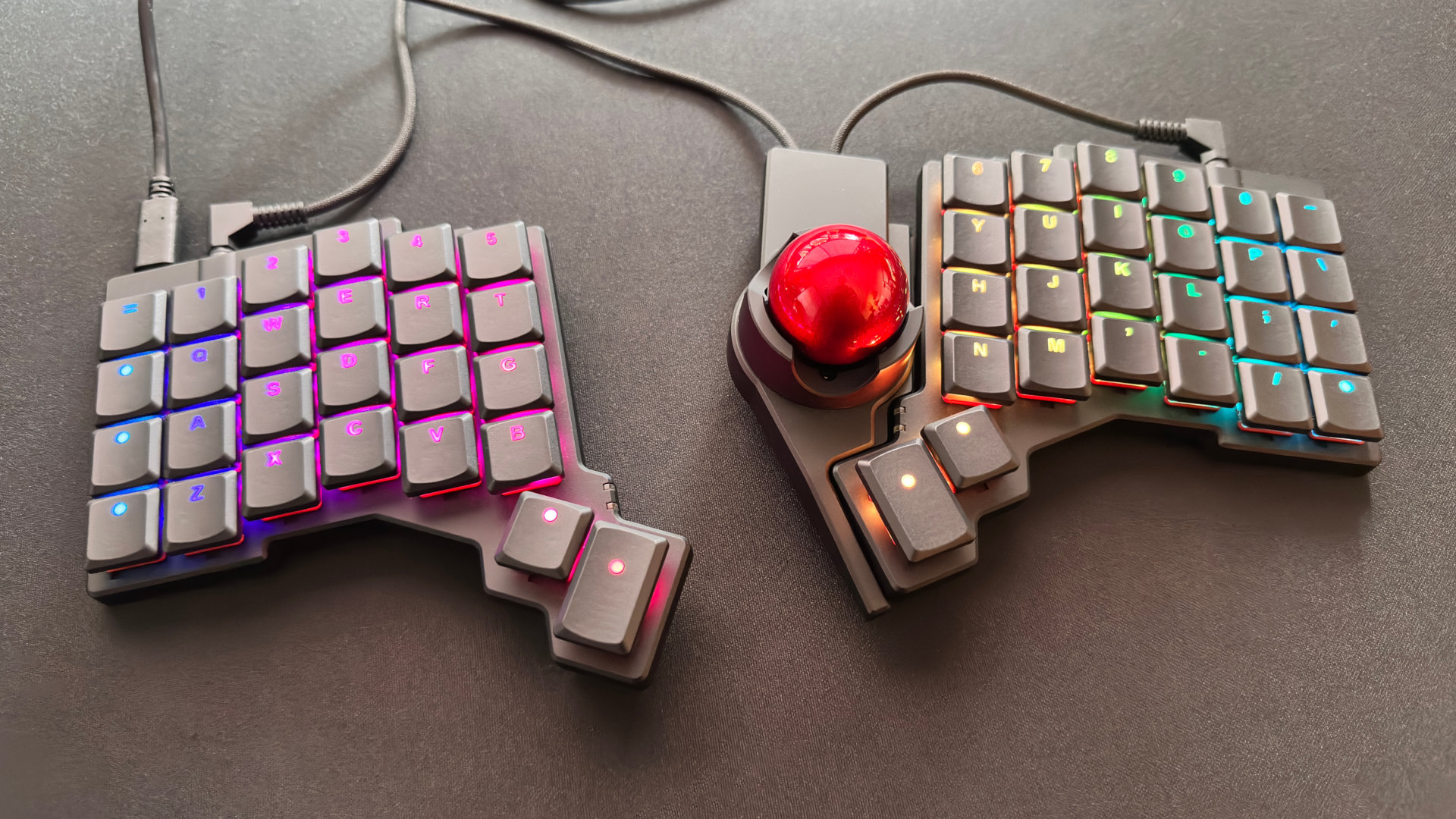I thought it might be tough to find actually good 1TB Cyber Monday SSDs for under $60 but found way more than I expected
Cheap storage has never been so fast or spacious as these choice offers.
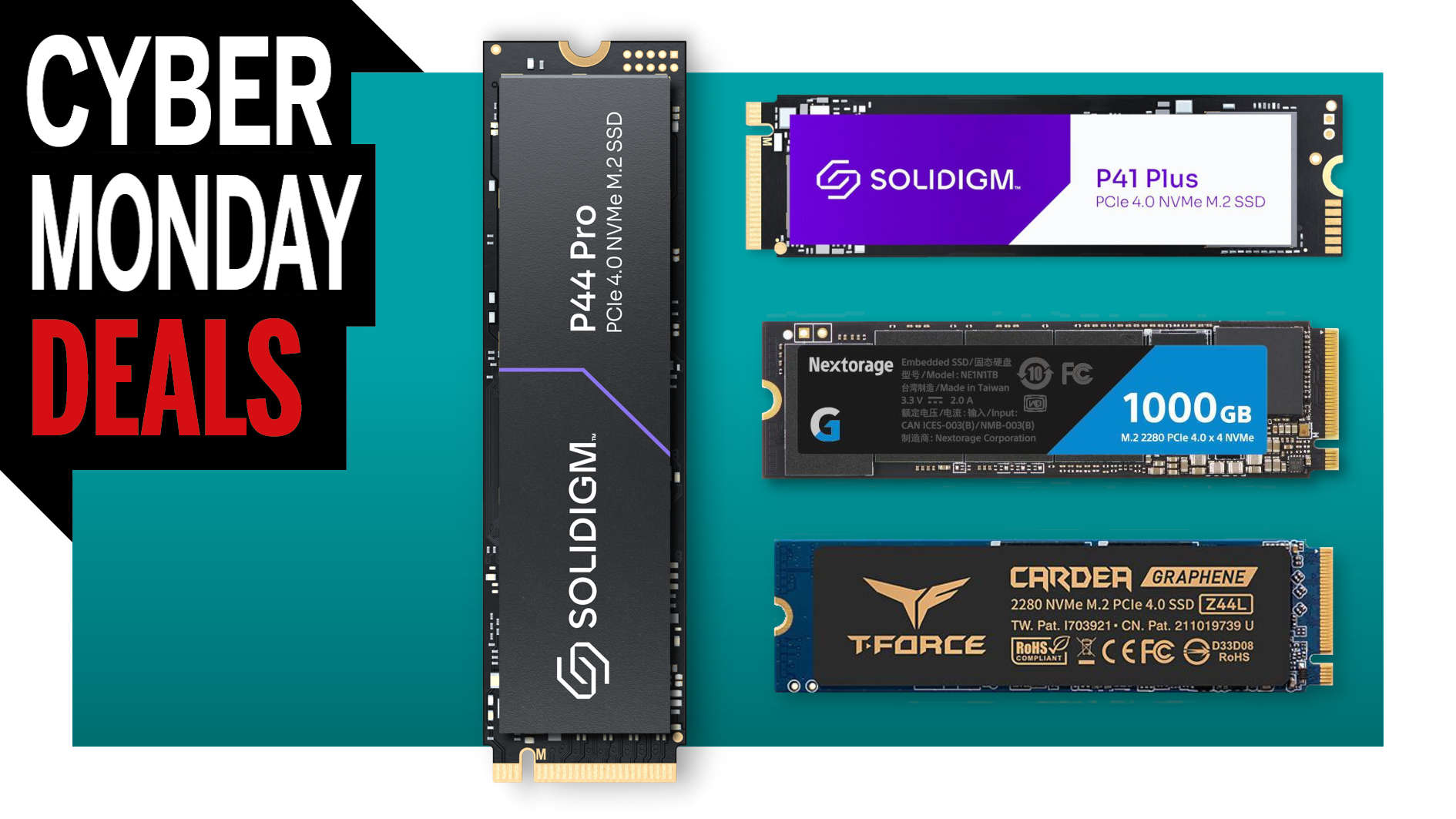
- Team T-FORCE CARDEA | 3,500MB/s read | 3,000MB/s write |
$59.99$43.99 - Solidigm P41 Plus | 4,125MB/s read | 2,950MB/s write |
$64.99$49.99 - Nextorage Japan | 7,300MB/s read | 6,000MB/s write |
$149.99$54.99 - Solidigm P44 Pro | 7,000MB/s read | 6,500MB/s write |
$91.99$59.99
SSDs bigger than 500GB used to be quite expensive, and I'm talking less than a year ago. But now you can load up your gaming PC or laptop with 1TB of storage without having to pay a small fortune or sacrifice performance.
I set a budget limit of $60 to see exactly what deals I could get for this money and four offers stood out from the crowd.
The first from Team Group isn't a rocket ship, considering it's an NVMe PCIe 4.0 drive, but you're paying less than $45 for something that will leave any SATA drive in the dirt. One advantage of its slower transfer rates is that it won't get very hot, which makes it ideal for laptops or small PCs.
Read moreRead less▼
Team T-FORCE CARDEA Z44L | 1TB | M.2 2280 | PCIe 4.0 | 3,500MB/s read | 3,000MB/s write | $59.99 $43.99 at Newegg (save $16)
You're not getting blistering read/write speeds here, just lots of storage for very little money. For a PCIe 4.0 drive, the data rates aren't great but it does mean the SSD won't get very hot, which is ideal for laptops or compact PCs.
Price check: $43.99 Walmart
Read moreRead less▼
Solidigm P41 Plus | 1TB | M.2 2280 | PCIe 4.0 | 4,125MB/s read | 2,950MB/s write | $64.99 $49.99 at Newegg (save $15)
Solidigm is a brand name of SK Hynix, a company that directly makes memory chips for SSDs. Here you've got a drive that has a faster read rate than the Team model, but a slightly slower write speed. The former should help PCs boot a little quicker so the extra $6 is worth it.
Price check: $49.99 Amazon |
If you want a little more oomph from your SSD, then for a whole $6 more you could get the Solidigm P41 Plus. It's read speed is 18% higher than the Team model and it's write speed is within 2% of the competition. Having a faster read rate is useful for booting Windows or loading apps quickly, so it's definitely worth a few extra bucks.
If you're feeling the need for some speed, though, you might be surprised by just how quick cheap SSDs can be. I have a decent suggestion for you, and just as with the slower drives, they're roughly the same.
Read moreRead less▼
Nextorage Japan | 1TB | M.2 2280 | PCIe 4.0 | 7300MB/s read | 6000MB/s write | $149.99 $54.99 at Newegg
Nextorage may be a relatively new name in the world of NMVe SSDs, but don't be fooled by appearances. It's a seriously fast drive, as we found when we've reviewed the 2TB version.
Read moreRead less▼
Solidigm P44 Pro | 1TB | M.2 2280 | PCIe 4.0 | 7,000MB/s read | 6,500MB/s write | $91.99 $59.99 at Newegg (save $32)
It's another Solidigm drive but this one is blisteringly quick. The Nextorage offer is clearly cheaper but if you want the absolute best write performance, for less than $60, this the one to get.
The Nextorage model might not have a name that you're familiar with but don't worry: It's a quality SSD with Sony heritage that isn't just quick for its price, it's quick full stop. The Solidigm P44 Pro is just as speedy, but gives up a little read performance for a faster write rate than the Nextorage.
Ultra fast SSDs can get a bit toasty when working really hard, so if you know you're going to be using them heavily then ensure your PC case has good airflow, especially over the area where you're going to install them.
But if you've got an older PC that only offers PCIe 3.0 support then don't worry, you can use any of these drives. What will happen is that SSD's read/write speeds will be lowered to fit within the 3.0 limits, which in turn will help keep temperatures under control.
You really can't lose with any of these four offers. Just get any of them and treat your gaming PC to some silky fast storage, all for less than $60.
Keep up to date with the most important stories and the best deals, as picked by the PC Gamer team.

Nick, gaming, and computers all first met in the early 1980s. After leaving university, he became a physics and IT teacher and started writing about tech in the late 1990s. That resulted in him working with MadOnion to write the help files for 3DMark and PCMark. After a short stint working at Beyond3D.com, Nick joined Futuremark (MadOnion rebranded) full-time, as editor-in-chief for its PC gaming section, YouGamers. After the site shutdown, he became an engineering and computing lecturer for many years, but missed the writing bug. Cue four years at TechSpot.com covering everything and anything to do with tech and PCs. He freely admits to being far too obsessed with GPUs and open-world grindy RPGs, but who isn't these days?
